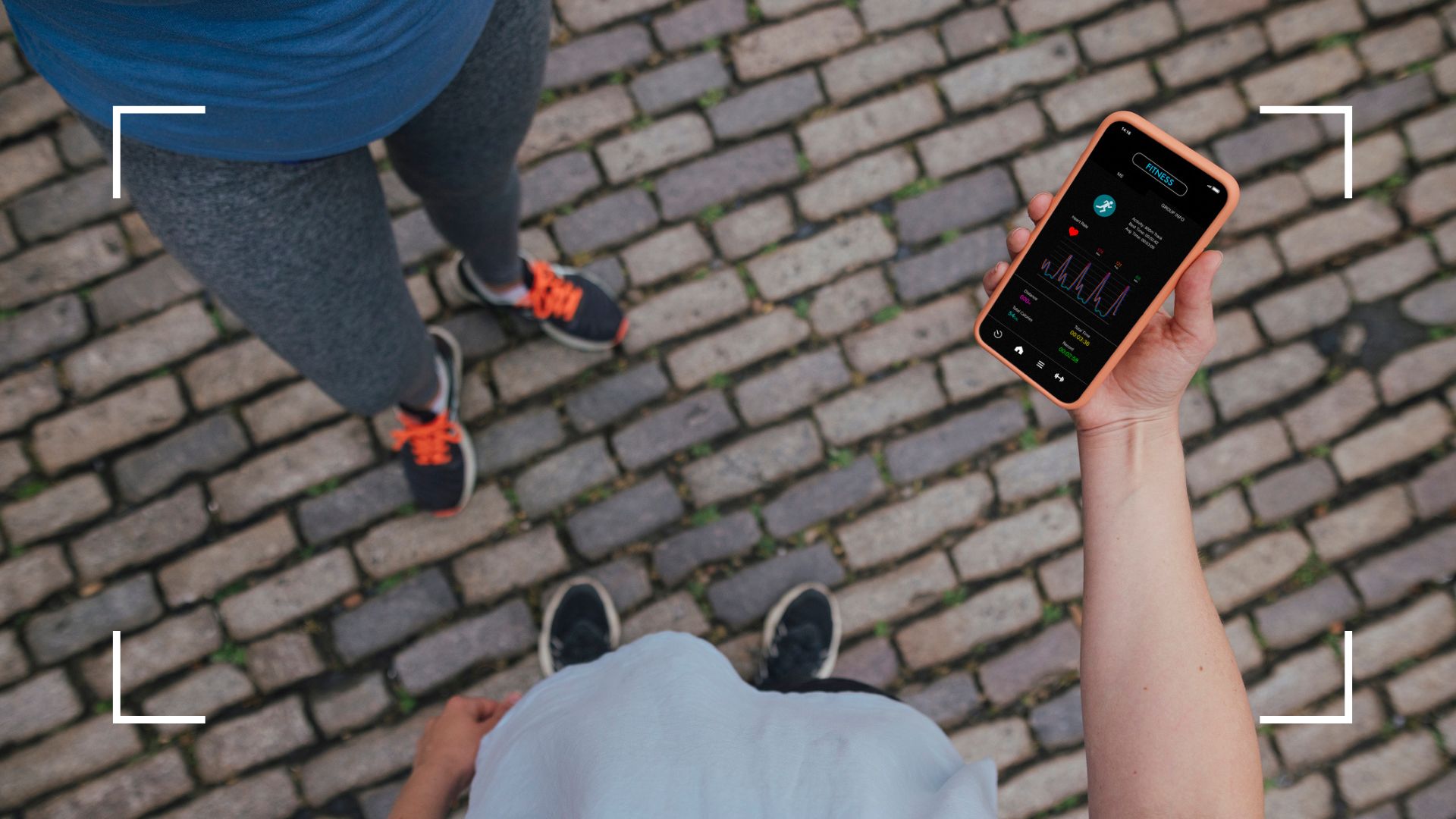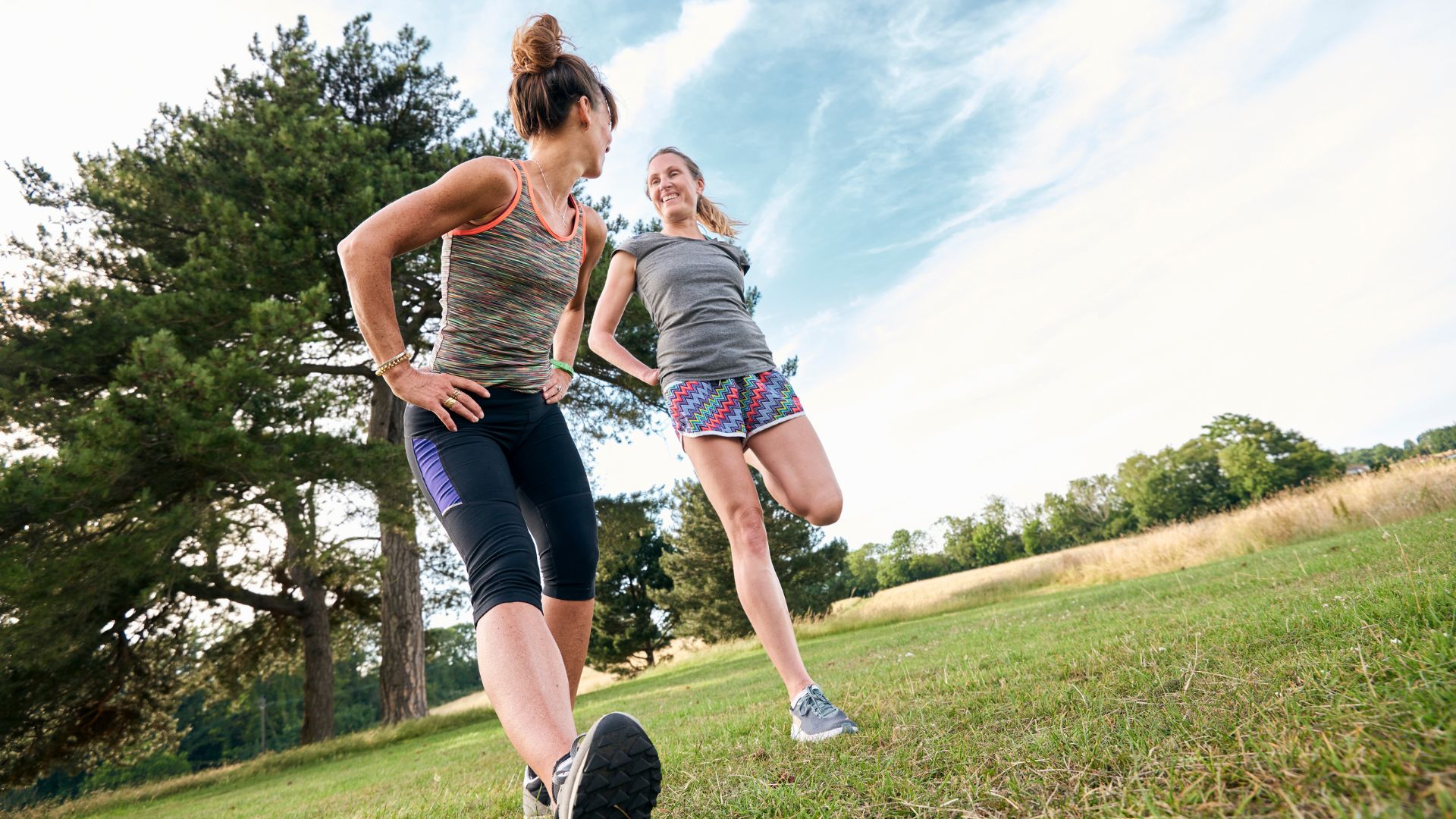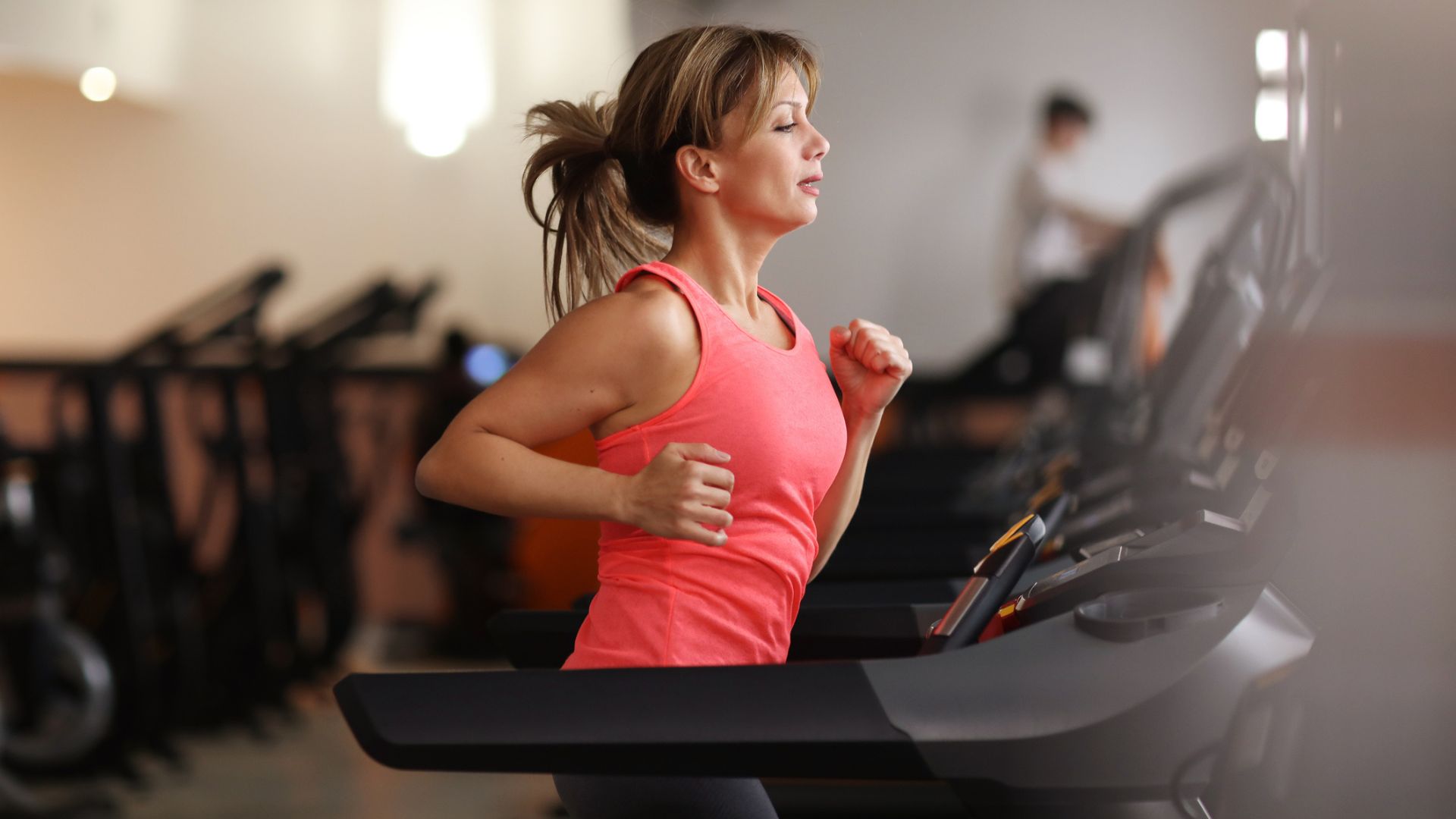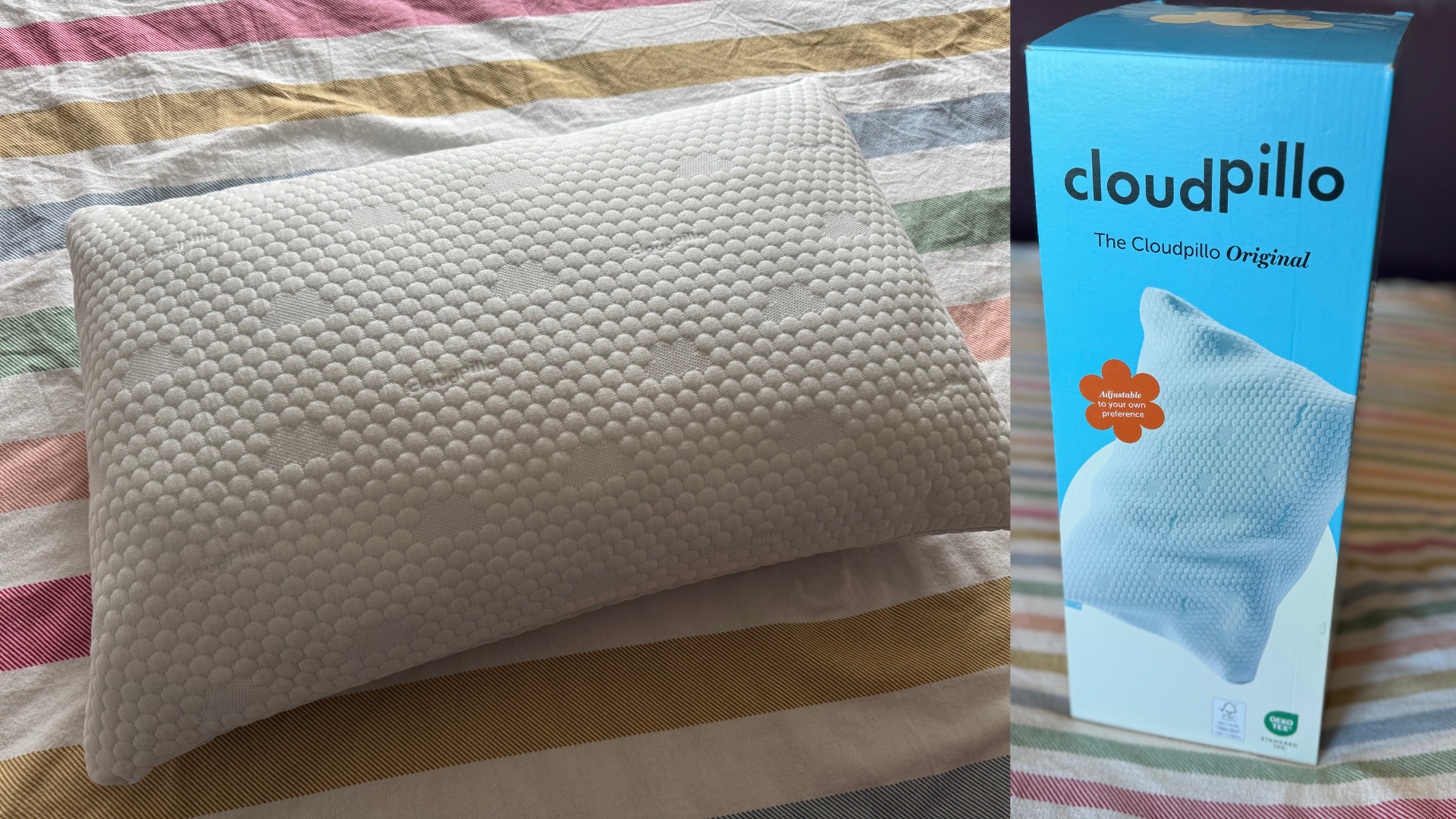What does running do to your body? 9 important changes you can expect to see
Running specialists reveal what running does to your body and changes beginners can expect to see from the first week


What does running do to your body? It's a question new runners often ask. Anytime you move your body in a new way, whether that's differently or more intensely than before, there's going to be some initial aches and pains. But if you can push through to the other side, there are often so many benefits to be had.
That's certainly the case with running. As running recruits all the muscles in your body from the tiny muscles around your ankles to your legs to your shoulders, there's almost guaranteed discomfort at the beginning. But also because of this, running can dramatically change the appearance of your body and how well it moves.
So, what are the short- and long-term impacts of running on the body? From improved cardiovascular endurance to weight loss to stronger hips, knees, and ankles, two personal trainers and running specialists reveal all the great benefits of running for women, whether you're training for a marathon or picking up running meditation, and the changes you can expect to see from the very first day.
What does running do to your body?
1. Running makes you fitter
When we talk about getting fitter, i.e. how long you can run without getting out of breath and needing to stop, we're talking about cardiovascular endurance and better endurance is one of the many reasons why people start running to begin with, explains Dr Sharon Gam, a personal trainer with a Ph.D. in exercise physiology. "Running makes our heart stronger and more efficient," she explains. "That allows it to deliver blood to the rest of our body with fewer pumps, conserving energy."
A healthier heart also means a reduced chance of serious adverse health conditions, she says. "When we exercise, the muscles we’re using need more blood. Our body gets extra blood to the right places by constricting some blood vessels and relaxing others to direct blood flow. When you exercise regularly, your blood vessels get better at constricting and relaxing, and their walls get more flexible and resilient. That reduces the risk of cardiac events like heart attacks or strokes."
2. It improves lung capacity
While the idea of panting and being out of breath while running is an off-putting aspect of the sport for many people, it's where we reap the most reward. "Running improves a measure of aerobic fitness called VO2max, which is the maximum amount of oxygen that our body can deliver to the working muscles," explains Dr Gam. "During exercise, our lungs have to be able to extract oxygen from the air and get it into the blood. They also have to take carbon dioxide out of the blood so we can breathe it out. Consistent exercise improves the ability of the lungs to transport these gases."
Improved lung capacity not only means you'll be better able to experience all the other benefits of running that come with running longer distances or faster, it's directly linked to overall health. For example, your fitness age is measured by VO2 max (along with other factors), and this points to longer-term health, including the risk of early mortality.
Sign up for the woman&home newsletter
Sign up to our free daily email for the latest royal and entertainment news, interesting opinion, expert advice on styling and beauty trends, and no-nonsense guides to the health and wellness questions you want answered.
3. You may lose some weight
Weight loss isn't everyone's goal when they learn how to start running - nor should it be - but running is a high-calorie-burning activity. If you take it up and keep your calorie intake the same as it's been without exercise or take it lower than the number of calories you burn every day, you'll lose weight naturally.
"Running is an excellent exercise for those looking to lose weight," confirms personal trainer Emma Bord. "It's a cardiovascular workout that uses the whole body, with the opportunity to burn a lot of calories because you are using so many different muscles together at once. Running increase your heart rate too, particularly if you opt for interval training, and this will contribute to a significant burning of calories during and after your workout."
While it differs from person to person, it's worth understanding how many calories running burns and how a calorie deficit works if you're looking to lose weight healthily.
4. Running increase strength in the bones and joints
Rumor has it that running negatively impacts your bones - especially the hips, knees, and ankles - and joints. While there is some evidence (from the Bun-dang Je-saeng Hospital) that this is true for ultra-endurance runners, it's certainly not the case for those running shorter distances.
"For people who run recreationally and have healthy joints to begin with, running usually has a positive impact. Our muscles and connective tissue adapt to the stress of running and get stronger and healthier," explains Dr Gam, in turn reducing the risk of injury in daily life and in the longer-term, by cutting the risk of osteoporosis.
In fact, Dr Gam points out, a systematic review in affiliation with Hospital Quirón Torrevieja looked at 125,000 people and found that the prevalence of osteoarthritis in the knees and hips of recreational runners was only 3.5%, compared to 10.2% in non-runners.
Of course, if you're new to running and head out straight out without stretching or warming up, you're going to feel it. To prevent injury and major muscle soreness, Dr Gam suggests "building up your running distance and speed slowly over time, wearing good running shoes and changing them often, running on grass or other relatively soft surfaces if you can, warming up before a run, and listening to your body. Take breaks if you feel very sore or experience pain."

5. It boosts brain power
Ever been for a workout and then had laser-focused concentration for the rest of the day? The effect of running on our brains is just one of the many reasons why running is good exercise.
"The movement of running increases circulation to the brain, which in turn boosts mood and brain function," says Bord. "The more oxygen heading to the brain, the more nourished brain cells are."
6. It can improve your mental health in the long and short term
When considering what does running do to your body, it's also important to look at the mental health effects as the two tie in so closely together. "These range from decreasing stress and anxiety, elevating mood, boosting self-esteem, and improving sleep, focus, and concentration," says Bord.
In the short term, as soon as you get moving basically, the body starts producing endorphins - otherwise known as the happy hormone. "This boosts mood and energy levels, and reduces symptoms of depression."
In the long term, running improves our self-esteem and is a great confidence booster. "Running offers the opportunity to set goals which once you start to work on and achieve, increase confidence both mentally and physically," she says.
7. Running makes you fall asleep easier - and stay asleep for longer
As Bord says, running has a big impact on the body and the brain, making sleep come a lot easier for most people. This is an effect we see with any type of exercise, but much of the research in the area focuses on those who do aerobic exercise - like runners, swimmers, and cyclists.
Research by the Iran University of Medical Sciences, for instance, compared the effects of aerobic exercise versus no exercise on participants over four and eight-week periods, and found that sleep quality and duration improved, as did participants' overall fatigue scores.
For those dealing with light insomnia or looking to learn how to sleep better, running could be a game changer. Not only does regular aerobic exercise help you drift off easier, but it also improves the quality of sleep too, the same research suggests. If you sleep well normally, be prepared to experience a shift in tiredness throughout the day though, which isn't always useful when you're trying to be productive.

8. It reduces the negative impact of stress
"Running also offers the opportunity to switch off your brain, taking your mind off stressful situations or pressures and allowing you to focus on just stepping one foot in front of the other," says Bord. "In this way, it can be seen similarly to walking meditation, relaxing the brain, and removing yourself from the chaos of everyday life, particularly if you get running in the great outdoors."
Stress has as much a physical effect on the body as a mental one though and running can help mitigate the physical effects of stress too. While exercise is no replacement for effective mental health aid, for example, one of the main symptoms of stress and burnout from work is insomnia and, as noted, this can be improved for many people with regular physical exercise.
9. Running can limit mobility
If you're asking 'what does running do to your body', then you're probably aware it's not all rosy. Along with the high potential for injury, especially among new runners (according to research by Aalborg University Hospital), those who run regularly can experience reduced mobility if they don't warm up and cool down effectively, alongside other activities like yoga or strength training.
"Mobility work is a hugely important part of running training. Rather than running helping to improve mobility, it is more the case that specific mobility exercises can aid runners perform better," explains Bord. "The movement of running can shorten and tighten muscles, which can reduce mobility and limit your range of motion. Runners need to stretch post-workout to lengthen these muscles both to improve mobility and decrease the risk of injury and muscle tightness."
How quickly do changes happen in running?
Some of the effects are immediate - like better sleep (because you're fatigued after a run) and the mental health benefits linked to the flow of endorphins - but others will take a little more time, says Dr Sharon Gam.
"The timeframe for improvements is really hard to pin down," she says. "It depends on your starting health and fitness, the distance and intensity of the running you’re doing, your genetics and physiology, and your nutrition, sleep, and stress management habits."
For example, you're bound to experience changes a little quicker (provided you can avoid injury) if you go running 30 minutes a day, compared to running once a month. A middle ground of twice to three times a week is largely considered to be a good place to start, the experts say. Within this, newcomers to running should supplement their runs with some strength training and mobility work, like yoga for beginners.
To see how your changes in real time, be sure to keep a diary either on paper or through one of the best journaling apps. "Keep a record of your daily mood, energy levels, sleep quality, ability to focus, and other mental and emotional indicators. Many people find that those things improve before they can see physical changes, and that can keep you motivated to stay consistent with your running habits," the personal trainer says.

Grace Walsh is woman&home's Health Channel Editor, working across the areas of fitness, nutrition, sleep, mental health, relationships, and sex. She is also a qualified fitness instructor. In 2025, she will be taking on her third marathon in Brighton, completing her first ultra marathon, and qualifying as a certified personal trainer and nutrition coach.
A digital journalist with over seven years experience as a writer and editor for UK publications, Grace has covered (almost) everything in the world of health and wellbeing with bylines in Cosmopolitan, Red, The i Paper, GoodtoKnow, and more.
-
 The Handmaid's Tale: Does June get Hannah back at the end of season 6?
The Handmaid's Tale: Does June get Hannah back at the end of season 6?It's been June's endgame from the very first moments of The Handmaid's Tale, but will she be reunited with her daughter Hannah at the end of season 6?
By Lucy Wigley
-
 My decades-long quest for the perfect pillow ends here, but forget what you think you know about memory foam
My decades-long quest for the perfect pillow ends here, but forget what you think you know about memory foamPacked full of tiny pieces of shredded memory foam with a dual-sided cover to keep you cool, this is the next best thing to sleeping on a cloud
By Heidi Scrimgeour